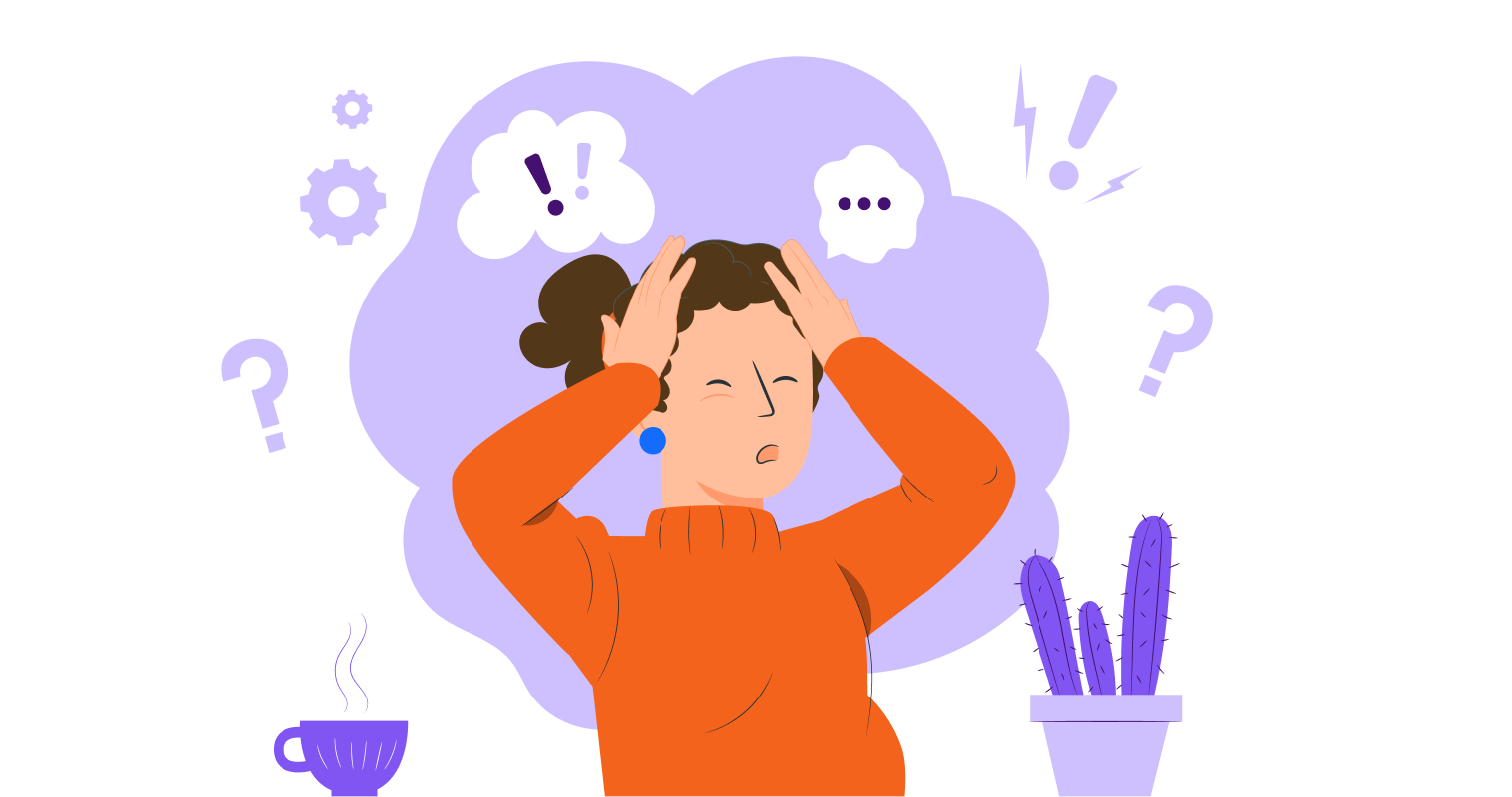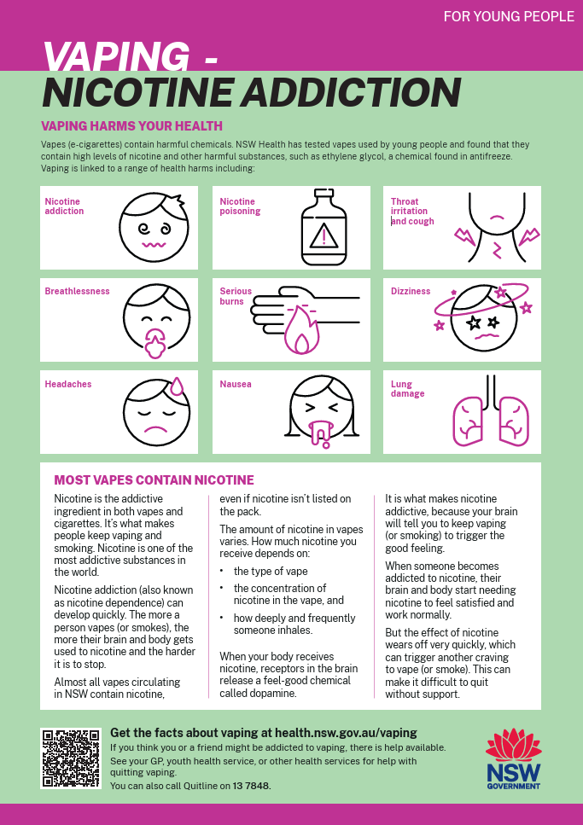- Home
- Topics
- Vaping
- Reasons to quit vaping
- Nicotine addiction
Nicotine addiction
Nicotine is the addictive drug in tobacco and vaping products that makes it hard to quit.

Did you know?
Most vapes contain nicotine, even if nicotine isn’t listed in the ingredients.
When you smoke or vape, the nicotine in these products unlocks a ‘feel-good’ chemical in the brain called dopamine. It is what makes nicotine addictive, because your brain will tell you to keep smoking or vaping to trigger the good feeling again.
The more you smoke or vape, the more nicotine you need to feel good. This is known as nicotine dependence. If you have nicotine dependence and stop vaping, you will likely experience cravings and other nicotine withdrawal symptoms such as anxiety, tension, headaches and trouble sleeping.
Nicotine withdrawal symptoms usually settle down after 2-4 weeks. Using a quitting medication, like NRT, can reduce uncomfortable withdrawal symptoms, and make quitting easier.
Support from NSW Quitline can also help to support you while you are quitting.

Vapes (e-cigarettes) contain harmful chemicals. NSW Health has tested vapes used by young people and found that they contain high levels of nicotine and other harmful substances, such as ethylene glycol, a chemical found in antifreeze.
Understanding nicotine dependence
It’s important to know that you can still become addicted to nicotine even if you don’t vape every day.
Signs that you might be addicted to nicotine include:
- You vape or smoke within 30 minutes of waking up in the morning.
- You vape or smoke alone.
- You find it hard to concentrate if you haven’t vaped or smoked recently.
- You feel you need to use your vape to stay calm or be in a good mood, or you feel stressed, anxious or irritable if you can’t vape or smoke.
- You’re interrupted by thoughts about vaping or smoking (cravings) when you’re doing other things.
- You don’t like leaving the house without your vape or tobacco.
How is nicotine harmful?
One of the most harmful effects of nicotine is addiction – needing to keep smoking or vaping exposes you to the harmful effects of the other chemicals in tobacco or vaping products.
When adolescents are exposed to nicotine, there is evidence that they may become addicted more quickly.
The addictive properties of nicotine also cause withdrawal. Nicotine withdrawal can make you feel irritable, anxious or angry, and can make it hard to concentrate.
Nicotine can harm the parts of the brain that affect attention, learning, mood and impulse control.
Nicotine raises heart rate and blood pressure, and it can narrow or harden the walls of arteries (vessels carrying blood), which may lead to a heart attack.
Nicotine can cause poisoning. Symptoms of nicotine poisoning (sometimes called ‘nic sick’) include nausea, headaches, dizziness, diarrhoea, increased heart rate, and vomiting.
Young children can die or be seriously poisoned from even small amounts of nicotine, so it’s very important to keep vapes, e-liquids and other products out of reach of young children.
Call NSW Quitline for advice on quitting vaping and smoking.